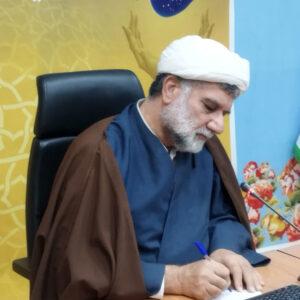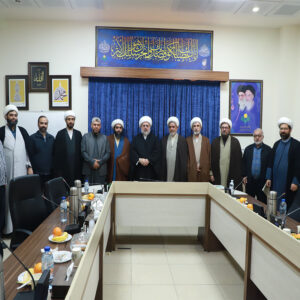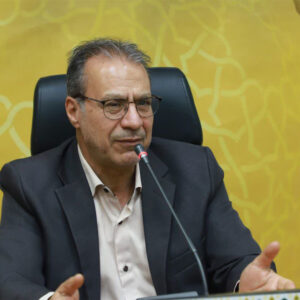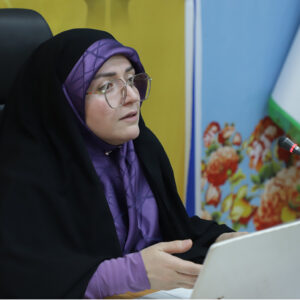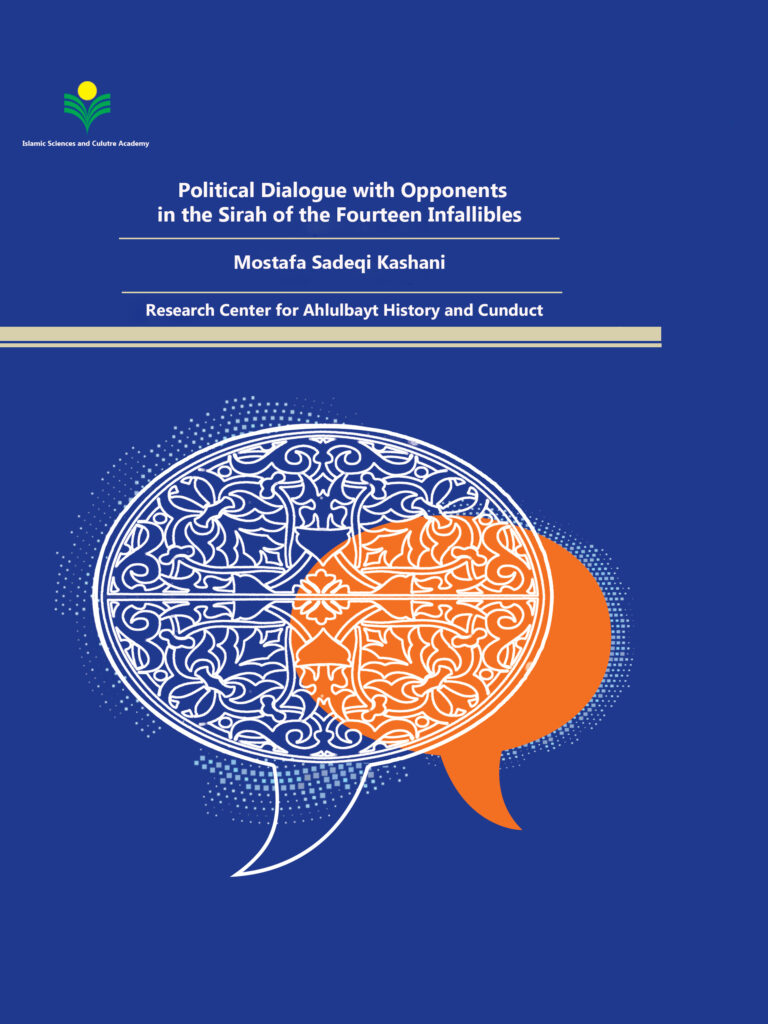Political Dialogue with Opponents in the Sirah of the Fourteen Infallibles
Author: Sadeqi Kashani, Mostafa, Associate professor, Research Center for History and Sirah of Ahl al-Bayt, Department for Sirah.
Sadeqi48@yahoo.com&Sadeqi48@isca.ac.ir
Keywords:
Dialogue, Politics, Ahl al-Bayt, Sirah, political opponents.
Problem Statement:
Dialogue is a means to understand and resolve issues with others, and it is not exclusive to any specific religion or belief system. The Prophet and the Infallible Imams, like all human beings, engaged in dialogues when confronted with challenges, which are significant to us as their followers. The Islamic Republic of Iran needs guidance and actions of the Prophet and the Imams as divine authorities for the implementation of political rulings. Their Sirah (lifestyle) and teachings serve as a model for political and social life. Understanding their Sirahs requires examination and research in various aspects, including how they treated opponents, which encompasses interaction and dialogue with enemies. Therefore, the focus of this article is on the political dialogues of these individuals, which have not been systematically studied thus far. The research problem and the main question are concerned with the nature of the political dialogues that took place between the Fourteen Infallibles and their opponents and enemies, and the principles upon which they were based.
Primary and Secondary Questions:
Secondary questions can be raised as follows:
In what ways can political dialogues between the Fourteen Infallibles and their opponents be envisioned? (Methodology)
For what purpose were the political dialogues between the Fourteen Infallibles and their opponents conducted? (Reasons and objectives)
What principles and foundations can be extracted from these dialogues? (Results)
Method
The study has been conducted using the method of historical analysis, and the research data is based on library sources and primary sources of history, hadith, and historical evidence from the lives of the Prophet and the Imams. In every report, it’s been tried to first examine the principle of accuracy and reliability, and then draw conclusions based on it. The writer acknowledges that some of the topics discussed are not in their contemporary sense, specifically when it comes to the concepts of “dialogue” and “negotiation,” which carry a modern connotation. The intended meaning here is “reconciliation.” It refers to any type of conversation that prevents war, violence, and bloodshed. Here, we are not seeking to prove the past for the sake of benefiting from it. Although there are numerous works on the subject of dealing with political opponents, no specific books or articles were found regarding the sirah of the Ahl al-Bayt (the family of the Prophet) in general and widespread dialogues with political opponents.
Structure
The book consists of three chapters. The first chapter covers general overview, concepts, and explanations of terms. After the background and research problems, concepts such as dialogue, politics, opponent, and related terms such as enemy are addressed. In addition, negotiation, debate, invitation, and peace are discussed. An important point in this chapter is that although some of the topics mentioned in this book, such as advising and admonition, and the conclusion of arguments, are not considered as dialogues between parties. However, since in recent literature these cases have been considered as dialogue and even a kind of negotiation, they have been used with these terms. The second chapter deals with the reasons and philosophy of dialogue with opponents and the importance of the subject from the perspective of The Fourteen Infallibles and it examines independent dialogues on dialogues found in sirah with an approach to conflict resolution, achieving peace, or attaining political power, and finally concludes with an examination of participation in political affairs. The third chapter discusses the types of these dialogues, examples, and historical instances. This chapter is divided into the following subjects: interactive dialogue and negotiation including political bargaining, granting and denying privileges, and unsuccessful dialogues. Non-interactive and one-sided dialogues include admonition, invitation, and threat. The fourth chapter concludes and summarizes the discussion.
Novelty
The difference and novelty in this study compared to other writings on the subject lies in its description, analysis, and interpretation of subjects related to political dialogue from the perspective of the practical behavior and sirah of the Fourteen Infallibles. Although attention has also been paid to their sayings, i.e. speech sirah, the focus is more on the practical sirah and what approach they have taken in dealing with political opponents. The more important novelty is that in similar studies and researches that have been carried out by experts in non-historical fields such as political science, the historical perspective and the evidence and evidence of the authenticity of the events and the dialogues of The Fourteen Infallibles with the opponents have been given less attention, and sometimes conflicting or even incorrect news has been the source of conclusions. However, one of the components of this research is the examination and criticism of some reports and narratives from which certain impressions have been made in this regard.
Results
The results that can be used from this discussion and examination are that: The Prophet and the imams had many dialogues with political opponents and enemies that focused on authority. The Fourteen Infallibles’ political conversations can be divided into two main types, including interactive and non-interactive. Non-interactive means dialogues that are conducted for the purpose of invitation or advising and are actually considered one-sided. The interactive part, which is called negotiation in the term of today’s politics, is only about the first few infallibles who had an apparent government and caliphate. In most of these dialogues, the opponent or the enemy has not been given any privileges.

